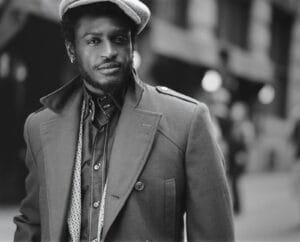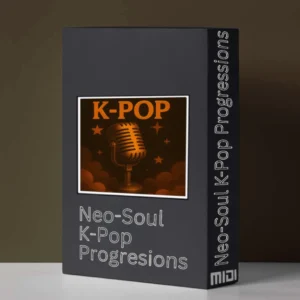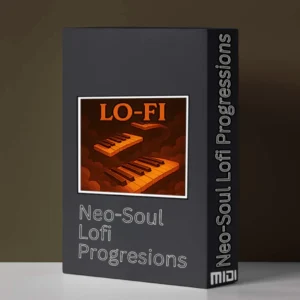
Send Us A Message
>
Why Marvin Gaye Was Such a Great Vocalist


Matt Crowe
Unique Vocal Characteristics
Marvin Gaye possessed a voice that was as versatile as it was captivating. His vocal range allowed him to effortlessly transition between rich baritone notes and a delicate, ethereal falsetto. This range made him equally adept at delivering sensual ballads, upbeat duets, and socially conscious anthems. Songs like “Let’s Get It On” showcase his ability to exude intimacy and passion, while tracks like “What’s Going On” reveal a voice that could express profound sorrow and hope with equal power.
Gaye’s tone was another defining feature of his voice. Often described as velvety, smooth, and emotive, his vocals had a unique ability to connect deeply with listeners. Whether he was singing about love, loss, or societal issues, his tone added an extra layer of authenticity to every word. His falsetto, in particular, was nothing short of magical. Tracks like “Got to Give It Up” demonstrate the light, airy quality of his falsetto, which seemed to float effortlessly over the music. It was this combination of range, tone, and control that made his voice instantly recognizable and profoundly impactful.
Emotional Depth
One of Marvin Gaye’s greatest strengths as a vocalist was his ability to convey deep emotions through his singing. He wasn’t just a performer; he was a storyteller who could make every lyric feel personal and heartfelt. In “What’s Going On,” his voice carries the weight of a world in turmoil, capturing both despair and a plea for change. Similarly, “Distant Lover” is a masterclass in longing and heartbreak, with every note dripping with raw emotion.
What set Gaye apart was his vulnerability. He didn’t shy away from showing his humanity, whether he was grappling with personal struggles, romantic turbulence, or societal issues. This authenticity made his music relatable and enduring. Tracks like “Inner City Blues (Make Me Wanna Holler)” reflect his ability to channel frustration and pain into a vocal performance that felt both personal and universal. As a listener, you didn’t just hear Marvin Gaye’s voice; you felt his soul.
Technical Skill and Innovation
Marvin Gaye’s technical prowess as a vocalist was matched by his innovative approach to music. One of his most groundbreaking contributions was his use of harmonic layering. Gaye frequently overdubbed his own vocals to create lush, multi-layered harmonies that added richness and depth to his songs. This technique is particularly evident in “I Heard It Through the Grapevine,” where his layered vocals build tension and drama, and in “What’s Going On,” where they create a sense of communal unity.
In addition to his harmonic skills, Gaye was a master of improvisation. His ability to ad-lib and scat sing added spontaneity to his recordings and live performances. These improvisations weren’t just technical flourishes; they were emotional expressions that enhanced the storytelling in his music. Whether it was a playful vocal run or a heartfelt cry, Gaye’s improvisations felt organic and perfectly suited to the moment.
Influence and Legacy
Marvin Gaye’s impact as a vocalist extends far beyond his own career. He set a standard for vocal excellence that has influenced countless artists across genres. Contemporary R&B and soul singers like D’Angelo, Maxwell, and Robin Thicke have all cited Gaye as a major influence, and his vocal style can be heard in their music. His ability to combine technical skill with emotional depth has become a benchmark for aspiring vocalists.
But Gaye’s legacy isn’t just about his technical abilities; it’s about the way his voice resonated with people. His music addressed themes of love, spirituality, and social justice, making him a voice for both personal and collective struggles. Even decades after his passing, his songs remain relevant and continue to inspire new interpretations and tributes.
Conclusion
Marvin Gaye’s greatness as a vocalist lies in the perfect fusion of his technical skill, emotional depth, and innovative spirit. His voice was more than just an instrument; it was a channel for human connection and expression. Whether he was layering harmonies, delivering a falsetto run, or pouring his heart into a ballad, Gaye brought a level of artistry and authenticity that few can replicate.
Through his music, Marvin Gaye reminded us of the power of the human voice to inspire, comfort, and provoke change. He was, and remains, one of the most celebrated vocalists in music history—a timeless icon whose voice will forever echo in the hearts of those who listen.
More Posts
-
Sale!
Neo-Soul MIDI Chords Bundle
Rated 5.00 out of 5$147.00Original price was: $147.00.$85.00Current price is: $85.00. Add to cart -
Sale!
Neo-Soul K-Pop Progressions
$55.00Original price was: $55.00.$47.00Current price is: $47.00. Add to cart -
Sale!
Neo-Soul Lo-Fi Progressions
$41.00Original price was: $41.00.$36.00Current price is: $36.00. Add to cart -
Sale!
Soulful Groove MIDI Bundle
Rated 5.00 out of 5$133.00Original price was: $133.00.$85.00Current price is: $85.00. Add to cart -
Sale!
RnB MIDI Groove Kits
$57.00Original price was: $57.00.$43.00Current price is: $43.00. Add to cart -
Sale!
Modern Percussion Mega Bundle
Rated 5.00 out of 5$134.00Original price was: $134.00.$94.00Current price is: $94.00. Add to cart











